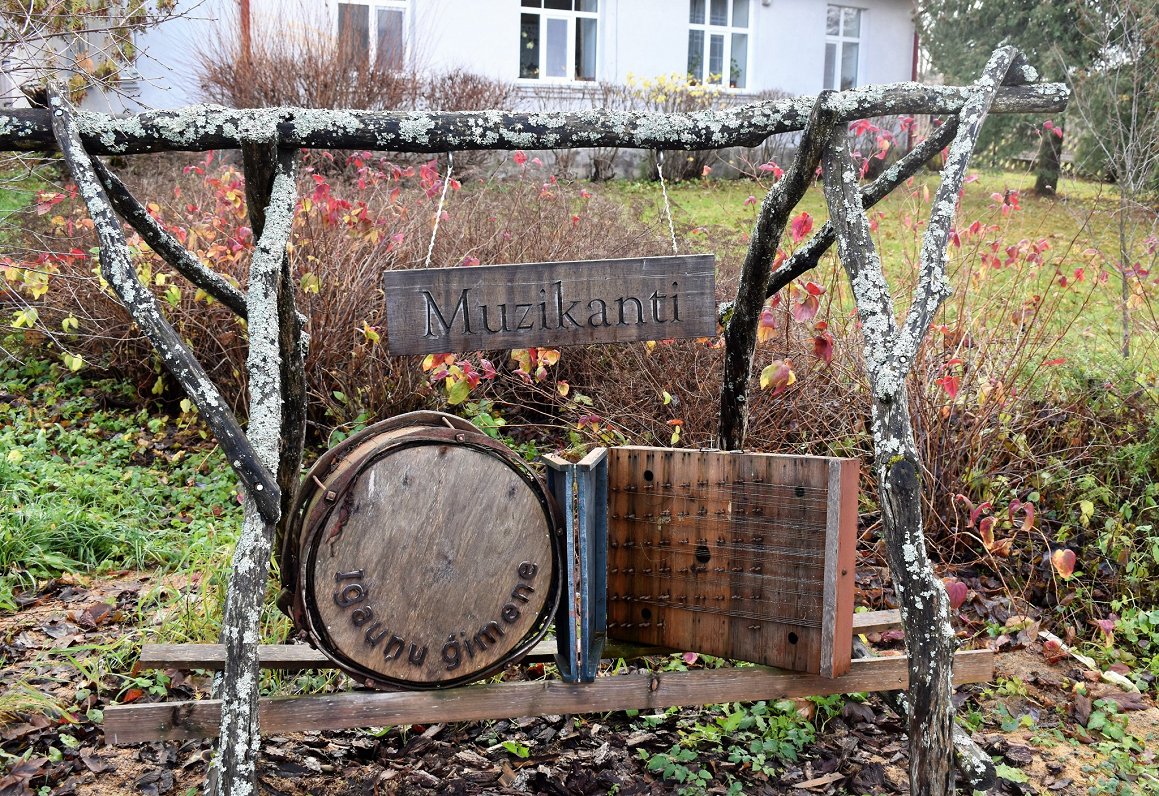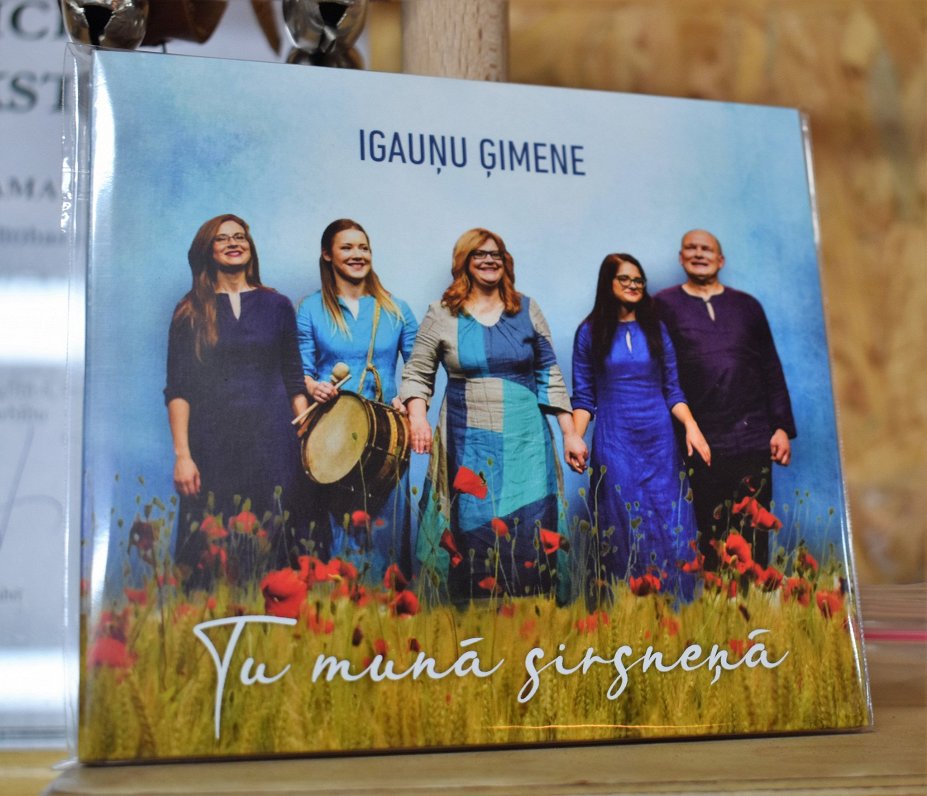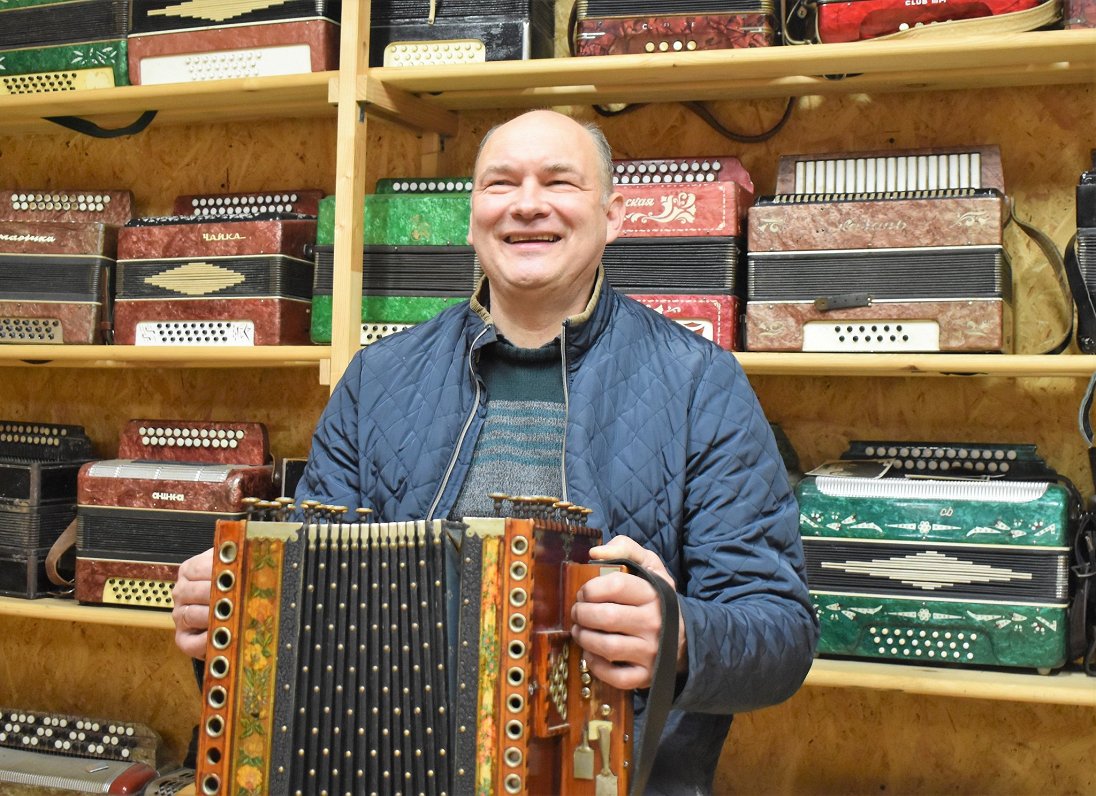Some years ago, a tourism campaign was launched which touted Latvia as “The land that sings.” To see this melodic gene in action, a great place to start is Gaigalava, 240 kilometers east of Riga.

In this pretty village in the heart of Latgale, Gunārs Igaunis brings harmony to the ear in many ways. He builds innovative new instruments, has amassed a unique collection of historic ones, and treats visitors from far and wide to hands-on workshops which get everyone’s feet tapping.
“By the end everyone is making music, even people who don’t see themselves as musical in any way!” says Gunārs.
After graduating from the Latvian Music Academy, Gunārs became a music teacher in his local district. In the chaotic early years of independence, area schools couldn’t get hold of xylophones and other instruments, so Gunārs started making them in his garage. By the late 1990s, cheap Chinese imports had put an end to the shortages, so he shifted to crafting traditional Latvian drums, zithers and kokles.
He has also designed a “sound bed,” an intriguing instrument with applications for health and wellbeing. As the patient lies on a wooden platform, and music strummed on a keyboard beneath sends soothing waves through their body. Turn the keyboard over, and it can be used to assist rehabilitation for hand traumas.
If further proof of Gunārs’ industrious nature is needed, he also brews moonshine to give tourists a taste of his native region.
“We have ancient moonshine traditions. After all, Latgale shares a border with three other countries, and we’ve borrowed a thing or two from them over the centuries - some good, some not so good,” he laughs.
During winter when orders for new instruments die down, Gunārs keeps busy repairing accordions. Over the years, people donated old ones they didn’t need anymore, and he has gradually acquired a unique collection. In the photo for this article, he poses with a historic accordion made by Augusts Ieviņš, who founded an accordion factory in Valmiera in the 1930s and ran a music shop on Kr. Barona iela in central Riga, until it was closed by the Soviet regime after the war.
Gunārs’ collection also includes zithers made in Latvia in the early 1990s, including some with buttons producing ready-made chords, making them prototypes for synthesizers. There are also harmonicas which recall a forgotten chapter of history; before the First World War, many people from Latgale worked in St. Petersburg, and they brought the tuneful mouthpieces home with them.
“Some returned with wives, others made do with harmonicas,” he says.
Gunārs rates himself as an accomplished player of the kokle and the accordion and can play a few other instruments, too. Together with wife Rasma and daughters Liene, Marta and Laima, he performs in the ensemble Igauņu ģimene (The Igaunis Family, see video below). The group has done well on national TV talent shows and toured across Europe and the USA. They are looking forward to doing live shows again after lockdown is lifted.

As far as the national knack for singing goes, Gunārs sees room for improvement. Whereas people used to make their own music, today most folks are mere consumers of it. He is shocked that few youngsters even know classic folk songs like 'Rīga dimd'.
“Because of progress, we’re falling silent,” he laments. “Even on Midsummer Eve it takes a big effort to sing, because all night the radio is making a noise there in the background.”
Gunārs’ advice is to get back to the do-it-yourself spirit. And even in major competitions, passion matters more than technical brilliance.
“The winners weren’t the ones who sang perfectly or had impeccable chords or intonation - they were those who really put their heart and soul into it,” he says. “And who played our own Latvian songs, not catchy foreign numbers.”
































